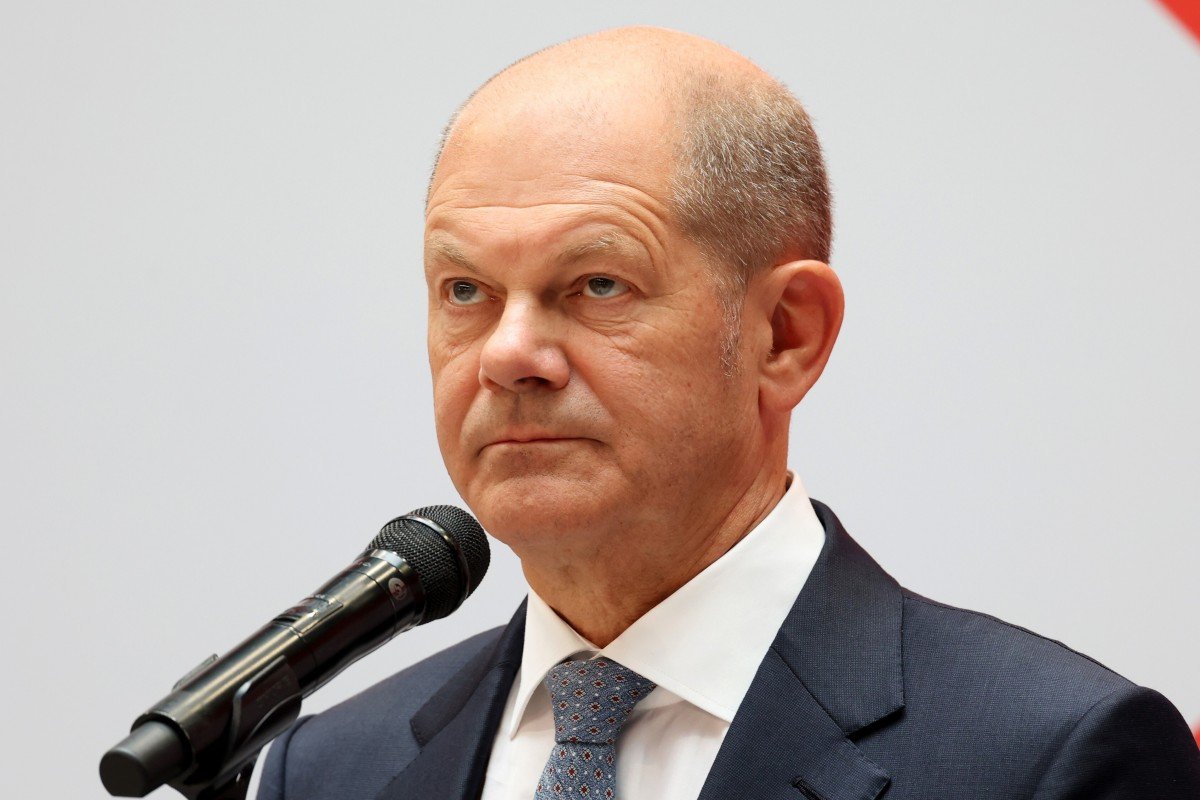Europe’s Defence
Revelations about the state of Europe’s defences are a stark reminder of the urgent need for a robust and united approach to security within NATO.
In the immediate aftermath of the Russian invasion, Mr Scholz had announced a Zeitenwende (dawn of a new era) in Germany’s defence policy. This envisaged shipments of anti-tank and anti-aircraft missiles to Ukraine.

German Chancellor Olaf Scholz (Photo: Twitter)
It might be off the mark to suggest that the European Union has been unnerved by Vladimir Putin’s demonstration of power in Ukraine. Suffice it to register that the German Chancellor, Olaf Scholz, is under pressure from his coalition partners to end heavy weapons to Ukraine. This has been couched in the warning that his hesitation is inflicting massive damage to Germany’s international standing. In the immediate aftermath of the Russian invasion, Mr Scholz had announced a Zeitenwende (dawn of a new era) in Germany’s defence policy. This envisaged shipments of anti-tank and anti-aircraft missiles to Ukraine.
This is in addition to a Euro 100 billion investment in the German military. But all these pledges remain as signals of intent on paper. Indeed, some of the Chancellor’s influential allies have questioned whether this “revolution”, so to speak, is living up to expectations. Berlin, it would be useful to underline, has blocked plans for an EU embargo on Russian oil. The government has stalled proposals to send tanks and other armoured vehicles to Ukraine. Mr Scholz has been urged to follow the example of the Czech Republic, which sent more than a dozen T-72 tanks. Additionally, the United States said on Thursday that it would include armoured vehicles and artillery in an additional $800 million military aid package for Ukraine.
Germany has turned down an appeal from Kiev for 100 1970s-era Marder armoured personnel carriers. Chancellor Scholz said this week that Germany would send what he called “correct and reasonable” weapons but would not take any step that would risk dragging his country into the Russian invasion of Ukraine.
Advertisement
Not wholly unrelated are reports that the loss of the Russian Navy’s Black Sea fleet flagship will make it more difficult to gain full control over Ukraine’s southern coast and ultimately move on to the port city of Odessa. The main role of the ship, Moskva, had been to launch precision cruise missile strikes at Ukrainian logistics centres and airfields. “The loss of the Moskva will reduce Russia’s ability to conduct cruise missile strikes but is unlikely to deal a decisive blow to Russian operations on the whole,” states an analysis by the Institute for the Study of War, a Washington- based think-tank. The Ukrainians claimed that the vessel had sunk after being struck by an anti-ship missile.
This has been denied by the Kremlin. Nor for that matter has it been confirmed by Western intelligence. The United States did not have enough data to determine whether the Moskva was hit by a missile. But whether the ship suffered a strike, or was damaged by a fire onboard, the loss to Russia’s prestige has been significant.
Advertisement